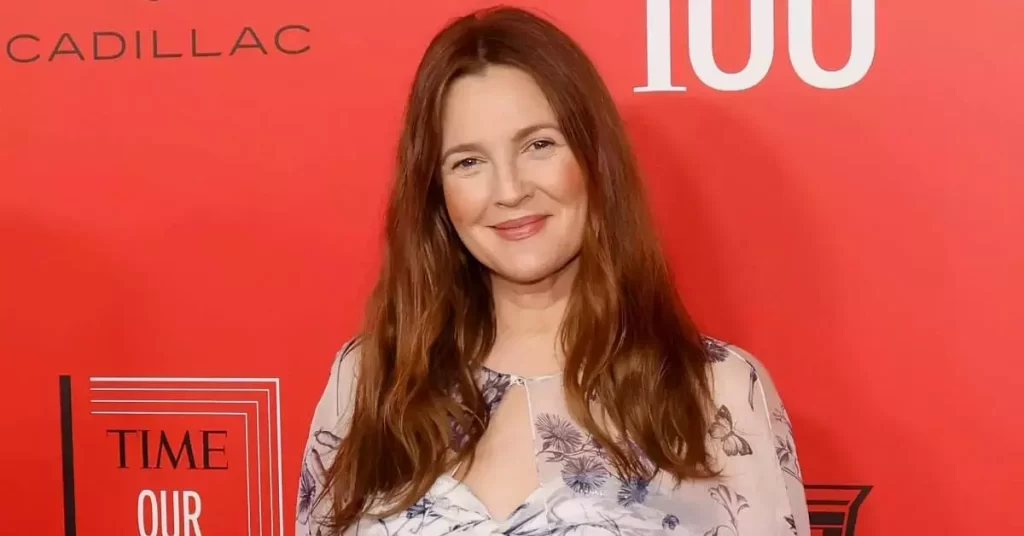Drew Barrymore’s Annual National Book Awards Hosting Revoked Amid Writers Guild of America(WGA) Strike
In a surprising turn of events, Drew Barrymore’s decision to resume her talk show amid the ongoing writers’ strike has sent shock waves through the literary and entertainment communities. The acclaimed actress and talk show host had been previously selected to emcee the prestigious 74th annual National Book Awards. However, following her announcement that production on “The Drew Barrymore Show” would resume despite the strike, the National Book Foundation swiftly made a tough call: Barrymore was dropped as the host of the highly anticipated event.
The National Book Foundation, responsible for organizing the National Book Awards, revealed this unexpected change in an official statement. The foundation emphasized that the National Book Awards is an evening dedicated to celebrating the power of literature and honoring the invaluable contributions of writers to our culture. In light of Barrymore’s decision to resume her show, the foundation rescinded her invitation to host the ceremony, a decision that undoubtedly disappointed fans and industry insiders alike. Notably, the foundation did not disclose whether a replacement for Barrymore had been chosen, leaving the public in suspense about who would step into this crucial role.
The foundation’s statement underscored their commitment to maintaining the focus of the awards on celebrating writers and books. Despite the challenges posed by Barrymore’s departure, the foundation expressed gratitude for her understanding in this situation, highlighting the importance of preserving the integrity of the event.
Barrymore’s decision to resume her talk show, despite the ongoing strike, raised questions and concerns within the entertainment industry. While daytime talk shows operate under a different Screen Actors Guild-American Federation of Radio and Television Artists contract, which was renewed and ratified the previous year, Barrymore’s show employed at least three writers who were members of the writers guild. These writers actively participated in the strike, picketing outside the CBS Broadcast Building in a display of solidarity with their union. The presence of striking writers outside the show’s production site highlighted the broader issues at stake: fair compensation, pension plans, and health insurance, matters that the Writers Guild of America was vehemently advocating for during the strike.
Chelsea White, one of the show’s writers, spoke out about the situation, emphasizing the significance of their union’s stance. White made it clear that the writers’ strike extended far beyond the confines of “The Drew Barrymore Show.” Instead, it represented a broader struggle within the entertainment industry, with writers standing together in solidarity to address critical issues affecting their livelihoods.
Barrymore, aware of the potential conflicts arising from her decision, acknowledged her past actions during the strike. She mentioned stepping down as the host of the MTV Movie & TV Awards in solidarity with writers, a move made in response to the specific concerns of studios, streamers, film, and television. However, the situation with her talk show posed a different set of challenges, leading her to make a difficult choice to resume production.
Barrymore’s announcement regarding the show’s return came via a heartfelt statement shared on Instagram. In her message, she emphasized the complexity of her decision, stating that while the show bore her name, the issues at hand were larger than her individual role. She assured her audience that the show would comply with the strike guidelines, refraining from discussing or promoting any struck film or television projects.
“The Drew Barrymore Show” had concluded filming for its third season in April, entering a summer hiatus. However, the show’s return for its fourth season triggered discussions and protests. The Writers Guild of America, the union representing many of Hollywood’s writers, included “The Drew Barrymore Show” in its picketing locations, underscoring the industry-wide solidarity behind the strike’s core demands.
As the entertainment industry grappled with these developments, the focus remained on the upcoming National Book Awards Ceremony. Barrymore, initially chosen alongside Oprah Winfrey to host the event, was a central figure in the discussions surrounding the ceremony. The awards, often referred to as the “Oscars” of the publishing world, were scheduled for November 15th in Manhattan. The event promised competitive prizes in categories such as fiction, nonfiction, poetry, literature in translation, and young people’s literature.
The abrupt change in the host lineup left many wondering about the future of the ceremony. While the National Book Foundation’s statement conveyed gratitude for Barrymore’s understanding, the search for a new host added an element of anticipation to the event. The foundation, responsible for ensuring the smooth execution of the awards, faced the challenge of finding a suitable replacement capable of upholding the ceremony’s prestige and honoring the literary achievements of the nominees and winners.
In the midst of these uncertainties, the industry awaited further developments. The National Book Awards Ceremony, a hallmark event celebrating literary excellence, stood at a crossroads, poised between the unexpected departure of its original host and the anticipation of a new chapter in its storied history. As the literary and entertainment communities held their collective breath, the outcome of this situation remained uncertain, leaving stakeholders and enthusiasts eagerly awaiting the foundation’s next move.



